
Articles
The Top 20 Free Software for Small Businesses
March 26, 2021
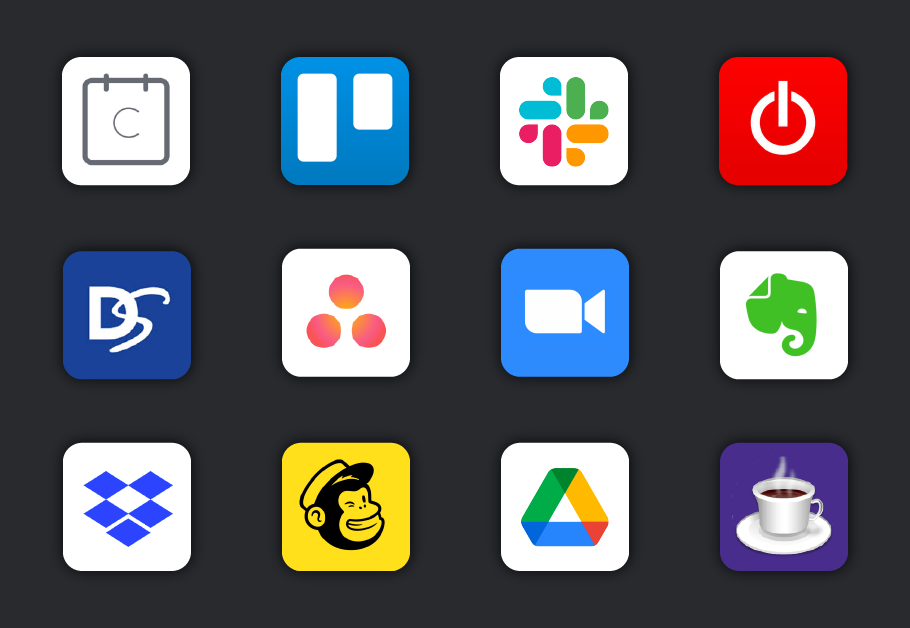
It’s no secret that there’s no shortage of small business tools out there. In the past few years, it seems like new software pops up every week.
But with so many options, how do you know which one makes the most sense for your business? And more importantly, how do you stay within your budget when most small business tools come with a hefty price tag?
The good news is that we’ve done the due diligence for you. And the even better news is that every single tool on this list is completely free. That’s right, free.
👉 Get the most out of your company’s tools by training your team on how to use them (using Trainual, the best small business training tool, of course). Try for free.
Why use free business tools in software form?
With most of the workforce now remote, it seems like small business tools are more necessary now than ever. Because whether you need to communicate with your team, manage your tasks, or onboard a new hire, these tools keep your business running smoothly. And they all buy into the mentality that you should "work smarter, not harder."
Meaning, a small business tool can be the key to streamlining processes, keeping your business running efficiently, and increasing productivity. All while saving you time. Plus, they can even eliminate some of the manual tasks you've been accustomed to doing.
That being said, it's easy to get stuck in the day-to-day without stopping to think about how you could improve how you do what you do. And navigating the hundreds of small business tools available can feel super overwhelming.
Sure, there are review sites to point you in the right direction. But you still have to sift through a ton of profiles.
So, I'll just say it - we know small businesses like the back of our hands. And we've curated a shortlist of 20 small business tools that we like best (and many of which we use ourselves).
You'll find 2 in each category to pick from – and hopefully, that makes the decision feel a lot less daunting!
Different types of software for running a small business
Before we get into the list, ask yourself: what are you spending your time doing? And which areas of your business can you automate, clean up, or lighten the workload?
Maybe it's the way you're doing your accounting or how you're managing your employee's time. Or maybe you're spending hours drowning in your email inbox - coordinating schedules and responding to threads that could have been a quick chat.
With the right business software tools, you can mitigate the extra time and energy wasted on these things. You just need to figure out what you're trying to solve first, so you can find the right type of tool for the job.
For example, there are tools for project management, time tracking, calendar management, collaboration, contact management, accounting, HR, social media, and more.
We've included 10 of the most common types of small business tools to get you started on your search.
Getting your team on board
The next thing to think about is how your team will use the small business tool. It might be tempting to try all the tools until you find one that works. But ultimately, this makes it harder to rally your team around the tool you land on.
That's because each time you add a small business tool to your processes, it's a major change. And most people don't love change - especially when it's seemingly the same change over and over.
So, you want to make sure the first tool you roll out is the right one. To do that, pick a small business tool that seems like it will take your business to the next level. Then, identify how and why your company should use the tool.
If your answer makes sense, give the tool a try. But start with a small sample size - such as one process owner, one role, or one team. And have each person document how exactly they use the tool (in Trainual, of course).
Does the tool actually make your business run smoother? If yes, clean up the documentation, so there is one clear way to use the tool. Then, roll out the documentation, followed by the small business tool. This will make people more likely to actually adopt the tool.
👉 A lot of people can be slow-moving to embrace a new way of doing things - which can cost your company big. Here's how to rally your team around change.
The best free small business must haves by category
Now that we've covered all that, let's dive into our hand-selected list of the 20 top free small business tools. For transparency, we’ve put an asterisk next to all the ones we use and love here at Trainual!
🔥 Tip: Trainual integrates seamlessly with most of the tools on this list - just saying. Try for free.
Task and project management
Task and project management tools for business keep the day-to-day workflow clearly outlined for your employees and your team aligned. You can separate activities by different departments or projects, create checklists with to-dos, and understand each person's workload on their plate.

Asana*
If you’re looking for a way to manage daily tasks and assignments, Asana is one of the best free tools for small business owners.
With Asana, you can create projects, assign tasks with due dates, track progress, and always keep a pulse on what works still needs to be done - right from the dashboard. And if you have 15 people or less on your team and can do without the premium features, it’s free!

Trello
Trello considers itself a visual collaboration tool. You can organize different project boards with cards and lists. Then, assign them to specific people with due dates. Their free account is pretty stripped down. But if you have a small group of people using it, it works great.
It’s easy to use and totally customizable. If you have a team of creatives or visual learners, this is the best free project management tool for you.
Time tracking
Time tracking software makes sense for some companies and not for others. If you run an agency or consulting firm, tracking hours is important so that your clients can be billed properly.
If you don’t have clients, you may not need to track your employee’s time. But you still might like to - just to make sure everyone is being productive.
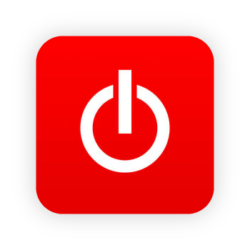
Toggl Track
If you have 5 or fewer people on your team, Toggl Track can be a great option. You can create time trackers for individual clients or projects - and track your time by starting and stopping the timer. (Their Google Chrome extension allows you to do this from any open tab.)
Plus, you can view the total time spent right on the dashboard and get a better understanding of how time-intensive each client or project is. And it integrates with over 100 different tools that you probably already use.

Harvest
If you’re riding solo in your company, Harvest is one of the great small business tools for time tracking. It’s similar to Toggl Track in that you’re getting the same efficiency and information. But with Harvest, you can only create up to 2 projects.
The desktop and mobile app makes starting and stopping your time a breeze. And it integrates seamlessly with most of the other free business tools If you’re a freelancer or don’t have any employees yet, this tool is great for productivity and keeping a log of hours worked.
Collaboration
Gone are the days of downloading and emailing a word document for someone on your team to review. No matter how small your team is, it’s way easier to add each person to the same collaborative document. That way, everyone always has the most current, edited version.
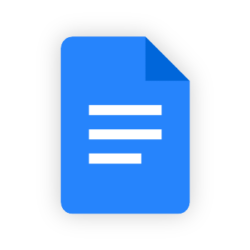
Google Workspace*
Google Workspace (which includes Google Docs) is the cloud version of Microsoft Word (it literally has all the same features). But unlike its old-school competitor, Google Docs is always free. And you can give your team access to your docs and collaborate on the content in real-time.
For example, you can leave comments on specific parts of the document and suggest changes. And it always shows the latest version! Plus, if you have to get back to a document, you can easily find it in your Google Drive.
🔥 Tip: Google Docs is great - but not for training your team. Learn why.

Evernote*
Evernote is basically your own library of notes, documents, lists, ideas, and more. You can add photos, scan documents, create tables, and add rich formatting. And put them all in one place to reference back to later. And like Google Docs, you can add collaborators to any of your notes.
Email marketing
Half of nurturing your customers is making sure to keep open lines of communication. And email marketing tools are a great way to do this - no matter how small your email list is.
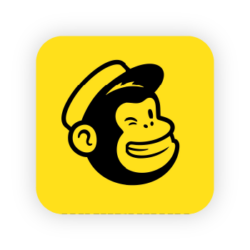
Mailchimp
Mailchimp is an intuitive and easy-to-use email marketing platform. And on their free plan, you can house up to 2,000 email contacts. With this tool, you can build landing pages and forms to nurture your customers and increase conversion performance.
Plus, whether you start from scratch or use one of their templates, it’s fully customizable, so your emails can reflect your brand.

ConvertKit
This email marketing tool is free to up to 1,000 email contacts. ConvertKit is similar to Mailchimp. It allows you to level up your email game and automate key marketing processes. And you can even use it to sell digital products and services - if that’s something that makes sense for your business.
However, this tool is not as intuitive for new users, but it’s well worth it if you’re willing to learn how to use it best!
Communication
If ever there was a time that small business tools for communication were important, now is that time!
We personally love the 2 tools in this section because we use them every day here at Trainual. And we even used them pre-pandemic. But since going fully remote, they've helped keep our team connected now that face-to-face interactions aren't an option.
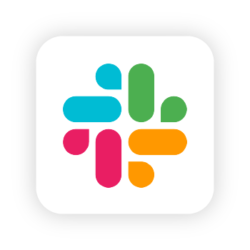
Slack*
If you aren’t using Slack, what are you even doing? Kidding (kind of)! Slack is our go-to small business tool (aside from Trainual, of course).
It’s essentially a way to direct message team members, share files, and share company-wide updates. You can even make voice calls rather than needing to share phone numbers with one another. The best part is, Slack keeps work communication in one place, so you can resurface answers later if needed.
👉 We love Slack so much that we decided to partner with them. Now, you can use our Slack integration to get all the training answers you need - right from the Slack app. Learn more.

Zoom*
I think most people have a love-hate relationship with Zoom at this point. But there's no denying it's a super helpful small business tool for keeping people connected.
On a Zoom free account, you can virtually meet with people for up to 40 minutes at a time. But there's no limit to how many calls you can make in a day. This is a huge win when you have tons of people to sync with or need to align a larger group of people quickly.
Here at Trainual, we've also used Zoom to host webinars, virtual company retreats, and even a 2k+ person event! Just to give you a few more ideas on what to do with the tool.
Document manager
As your company starts to grow, having a central document management system to organize and share files is critical. That's because it's not helpful when different employees have files saved all over the place, and not everyone can access them. Luckily, there are plenty of small business solutions to help keep you organized - and collaborative.
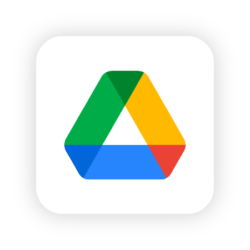
Google Drive*
If your company is a Google Workspace user, using Google Drive to manage all the content is a no-brainer. You can create folders, upload and organize files, and share content with just a link. And it's 100% always free.
However, as your company and its documents grow, you may want to move to a system where you have more control over who has access to what information. Especially if your team absolutely needs to know it.
🔥 Tip: With Trainual, you can assign training content directly to team members, track when they went through it, and test for understanding. Try for free.

Dropbox*
Dropbox is a wonderful small business tool for document management. While it doesn't have the functionality of creating content as Google Workspace does, it's a robust and intuitive file system.
With Dropbox, you can organize, upload, and share links to files. And you can assign files to people for review, provide comments and feedback, and add tags so you can easily find what you're searching for.
Accounting
Starting early with an accounting small business tool is one of the best decisions you can make for your company. That way, all your financial information is in one place from Day 1. And you can easily track transactions, store receipts, create invoices, manage contacts, and make filing your business taxes a lot easier.

Wave
Wave is an accounting software where you can easily track your business income and expenses. And it gives you an overview of your business's financial performance right from your dashboard.
You're also able to create and send invoices to clients and customers with auto-reminders. That way, you no longer need to chase down payments. And you can store and categorize your receipts, so everything is on the books.
With the paid version, you can process payments as well - if that's something you need.

ZipBooks
ZipBooks calls itself "the simple accounting software that makes you smarter." Which makes it sound like a dream small business finance tool.
Like Wave, you can manage all of your accounting, send invoices, collect invoice payments, and store receipts. And it uses a color-coding system, so it's easy to tag and categorize your company's finances.
eSignature
Remember when you used to download and send contracts via email. And then you’d have to print it, sign it, and somehow scan it back to the person. A huge pain, right? Well, now, there are awesome e-signature small business tools you can use, so the process is 100% digital.
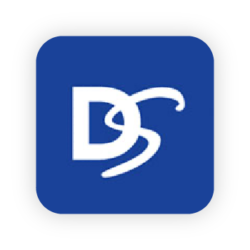
DocuSign
DocuSign used to have a free plan. But recently, they switched to a 30-day free trial (to make sure you love it) and a base plan starting at $10 a month -which isn’t bad to save you from the headache described above.
With the base plan, you can send 5 documents a month to get signed. All you have to do is upload the document, and place markers wherever the recipient needs to sign, date, or fill in any information. And the platform will handle all of the communication for you.
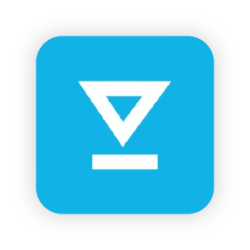
HelloSign*
HelloSign is essentially the same thing as DocuSign - but they still have a free plan for up to 3 documents per month. It’s highly intuitive and will also handle all the communication for you. It even sends auto-reminders on documents still waiting to be signed.
And if you’re not sending a lot of documents each month, this is the perfect small business tool for getting your paperwork in order.
Calendar
Calendar scheduling small business tools are a total game-changer. If you have employees who take a ton of calls with customers or find your calendar filling up fast, you need one of these small business tools.

Calendly*
With a Calendly free account, you can easily manage what meetings fill up your calendar. Just set the type of event, input your availability, the call's duration, and even add a form to get any information you need for the meeting.
Then, Calendly automatically adds bookings to your calendar, so you never have to worry about transferring information, getting time zones wrong, or missing a meeting. (This tool has made a huge difference for our sales team, customer experience team, and CEO!)
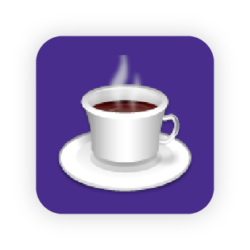
BreakBot*
If you're constantly stuck in back-to-back meetings all day, BreakBot is here to save you. (And we'll admit, we're a little biased about this one.)
BreakBot is a completely free Google Calendar Add-on that will protect your calendar by auto-scheduling breaks into your day. Just decide how long you want your breaks to be and how long you want to work in between them. That way, you can get up, stretch, grab a coffee, go to the bathroom – do whatever you need to do before your next meeting.
👉 Get the break you deserve with BreakBot, the totally free Google Cal add-on from Trainual. Start using BreakBot.
Social media management
Last category – but definitely not least: let's talk about how you manage your social media accounts. You might have a love-hate relationship with social media, but the truth is, you need to do it. Because your customers expect you to be everywhere.
But we also know it's super time-consuming to manage your channels every day. So, why not pre-schedule social media content? That way, you can time batch when you work on social and let automation do its thing. All while keeping up your online presence!

Buffer
With a Buffer free plan, you get up to 3 social channels and 10 scheduled posts at a time per channel. It's the most basic setup to get you used to pre-scheduling your content.
All you need to do is select the channel, add a caption, upload any media assets, and schedule when you want the post to go live. If you're posting once per day, that's 10 days of content you can schedule out. And it's completely hands-off (save for replying to any comments or DMs) until the next batch.
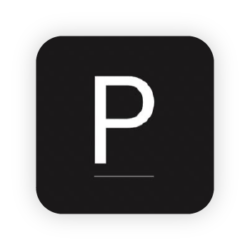
Planoly
Suppose you have a more visual product and care about your feed’s aesthetic. In that case, Planoly is the perfect small business tool for your business.
With the free account, you can manage your Instagram and Pinterest accounts - with 30 uploads per account each month. Meaning, if you post once a day, that’s a whole month’s worth of content you can schedule for free.
The only catch is that you’re basically limited to photos only. But you’re able to upload and arrange your posts in a grid, so you can see exactly what your feed will look like when things go live.
So, there you have it! Our tried and true tech stack of small business tools. And we guarantee that if you use any of them, you'll see your processes become more efficient and feel more in control of your team's workload. (We did!)
Similar Blog Posts










